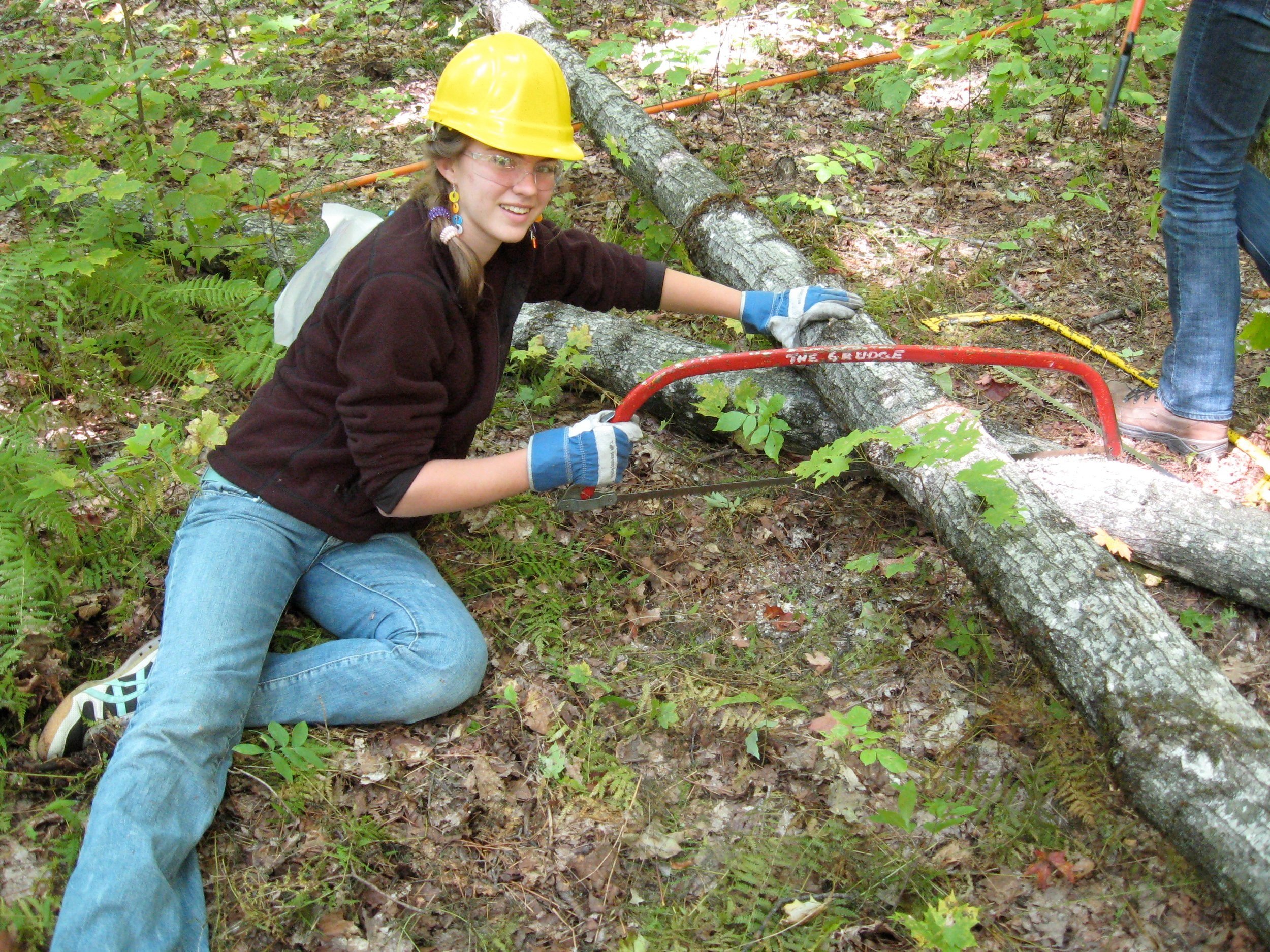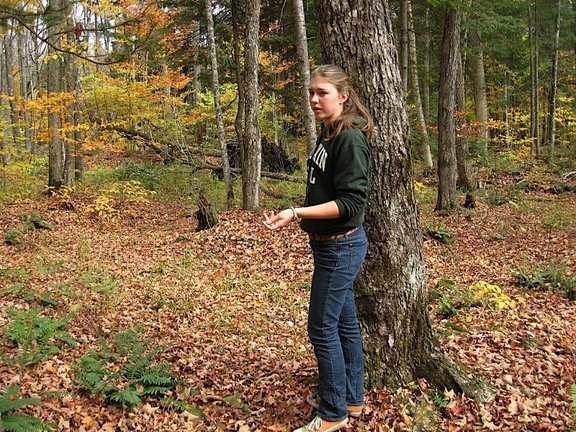Corey Bassett F’08: Lessons from an Urban Forester
At TMS, Corey Bassett loved Wood Crew. Now, she’s an urban forester working to bring sustainable futures to her community.
Corey Bassett is a researcher and urban forester. She is currently a Research Biological Scientist, i-Tree Science Lead at the USDA Forest Service, Baltimore Urban Field Station. She completed her PhD at the University of British Columbia, Faculty of Forestry, where she researched urban forest management and ecosystem services.
F’24 student Chloe Alimento-Miller sat down with Corey when she returned to campus this fall as a guest lecturer. Chloe’s piece was originally published in the Fall 2024 edition of Pearls and Seaweed, TMS’s alumni newsletter.
“[Corey] wanted to show that though we are doing so much for nature and the environment here, there will be more to see (and do) when we leave. She put into perspective that when we move forward we shouldn’t think of the Mountain School as its own isolated place and what we learn here as isolated ideas that can’t be applied in other settings.”



We sit at a round table in the dining hall, talking about the changes since Corey Bassett attended TMS. “That's what I was thinking before coming back here for my visit—that the students now were born when I went here.” She laughs and continues to talk about how although there may have been many differences, like the schedule and faculty, the school’s core values have not changed.
Today, Corey works as a postdoc researcher at George Washington University’s Department of Environmental Health. Before getting her PhD at the University of British Columbia, she worked as an urban forester and arborist across the US. “The difference between an urban forester and an arborist,” Corey says lightly, “is like the difference between working in public health and being a doctor.”
She has come to the Mountain School to visit our Environmental Studies classes and to see the school again. She mentioned how coming back for her 15-year reunion gave her a new perspective on the Mountain School. She found a new appreciation and curiosity for how it runs now.
Corey talks about the environment TMS fosters—one in which students and teachers work together for the good of the community. This is similar in her own line of work as an urban forester. Her favorite part of urban forestry was working with people across a broad range of backgrounds who had visions for what they wanted to see and saw them through: “In terms of educational backgrounds and income levels, there’s so much respect for people who’ve been in the trades or don’t have college degrees. You have meetings and panels with people who don't have college degrees but are still considered experts in their field, sitting next to PhDs; and everyone’s opinions are valued with so many experiences to offer.” She is frequently impressed by how much progress her collaborators make in their communities in so little time. She loves seeing the results of hard work in a way that immediately affects people and will continue to impact them for the rest of their lives.



That’s part of the reason Corey wanted to share her experiences with us. She wanted to show that though we are doing so much for nature and the environment here, there will be more to see (and do) when we leave. Her presentations taught Environmental Studies about different places in which urban forestry is being used and the debates and ideas around what the balance between urban and natural life should be. She put into perspective that when we move forward we shouldn’t think of the Mountain School as its own isolated place and what we learn here as isolated ideas that can’t be applied in other settings.
“The Mountain School is like one system, and it feels like when we’re here, we are the system,” I say.
And to that Corey nods before reminding me, “You are the system in other places too.”

